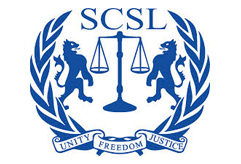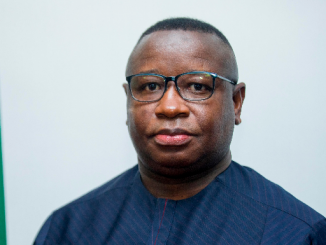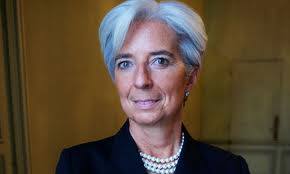
Residual Special Court for Sierra Leone
Public Information
PRESS RELEASE Freetown, Sierra Leone, 3 December 2015
Plenary of Judges Considers Legacy, Charts Way Forward
The President and Judges of the Residual Special Court, met in plenary this week to document the Court’s judicial legacy and to consider changes intended to chart the course of the RSCSL’s functions into the future.
This is the first time the Judges have met since they were sworn in two years ago at a ceremony in Freetown. The Judges, together with colleagues invited from other international courts and tribunals, shared experiences and discussed recent developments in international criminal justice. They looked at emerging issues with residual mechanisms and convicted prisoners, jurisprudential developments concerning children in armed conflict, the relevance and future of international judicial responses to threats against world peace and security, and sexual violence in conflict.
The RSCSL Judges, who typically exercise their functions remotely, met at the Court’s interim seat in The Hague to deliberate on matters related to the proper functioning of the RSCSL, and on problems posed by the enforcement of sentences. The Plenary approved the finalization of the Appeals Chamber’s major jurisprudential legacy project, a legal briefing book entitled “Bearing the Greatest Responsibility: Select Jurisprudence of the Special Court for Sierra Leone”, which will be launched shortly. The book will be made available to legal scholars, jurists, and other courts as the RSCSL’s contribution to the international criminal justice system.
The Special Court for Sierra Leone was the first international tribunal to try and convict persons for the use of child soldiers, forced marriages and for attacks directed against United Nations peacekeepers, as crimes against humanity. The Special Court was also the first modern international tribunal (and the first court since Nuremberg) to indict, try and convict a sitting head of state.
In 2015 the RSCSL was the first court to grant Conditional Early Release to a prisoner to serve the balance of his sentence in his community, subject to strict conditions and monitoring. The Registrar briefed the Judges on the matters relating to the prisoners, on witness protection, the Ebola scourge in Sierra Leone which is happily over, and on the RSCSL’s financial condition and fundraising efforts to secure financial stability for the institution.
The Judges expressed concern about the future of the RSCSL, and stressed the importance of identifying sustainable means of funding the Court. The Judges re-elected Justice Jon Kamanda as the RSCSL’s Vice-President and elected Justice Pierre Boutet as Staff Appeals Judge. Justice Elizabeth Nahamya was elected Deputy Staff Appeals Judge. #END
The Residual Special Court for Sierra Leone is responsible for the ongoing legal obligations of the Special Court for Sierra Leone, which concluded its mandate in December 2013. These include supervision of prison sentences, witness protection and support, maintenance and preservation of the archives, and assistance to national prosecution authorities.



